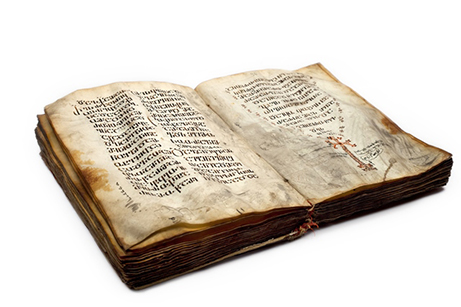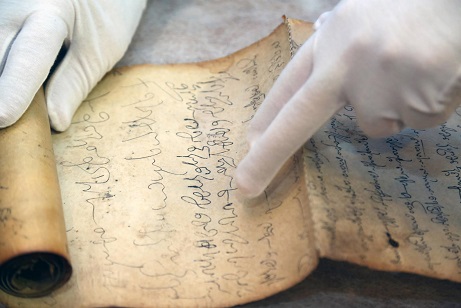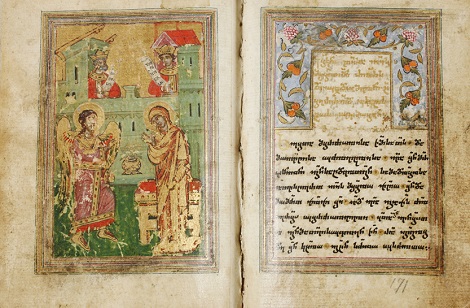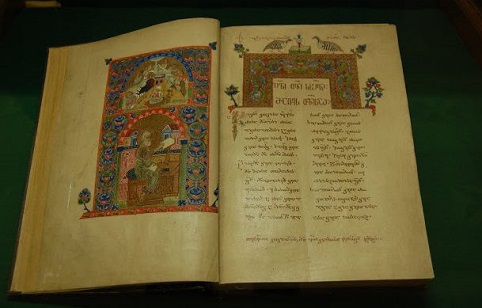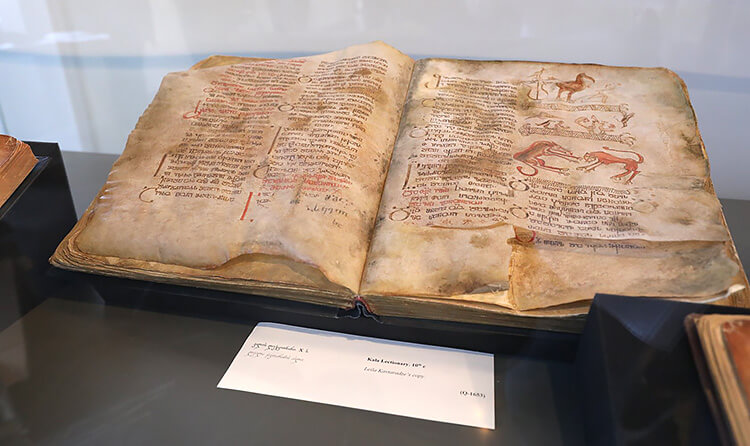Unseen historic Georgian manuscripts found in German archive
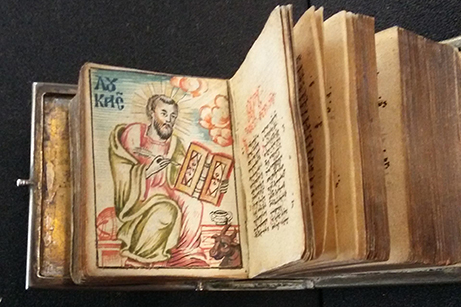
Two previously unknown historic Georgian manuscripts have been discovered in Germany's largest scientific library.
Dating back 200-300 years, a miniature Biblical book written in old Georgian script and a Georgian folk tale manuscript were found in archives of the Berlin State Library by researcher Giorgi Kavtaradze.
The Biblical book was acquired by the library from a private collection owner in Amsterdam in 2012.
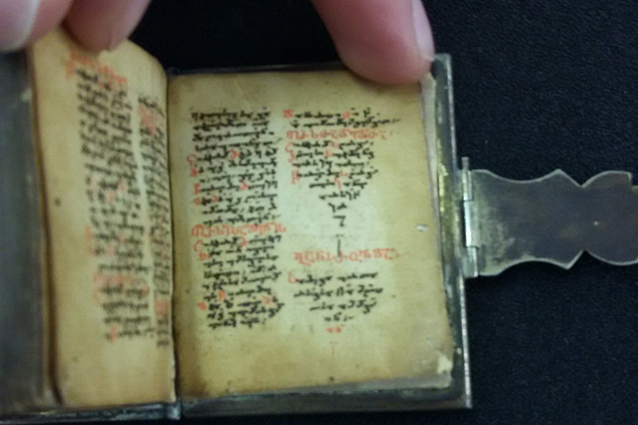
The Biblical manuscript book was too small in size to be digitalised. Photo by Giorgi Kavtaradze/Facebook.
The religious writing was created in the old Georgian Nuskhuri script and featured an illustration of Luke the Evangelist. Its small size meant it was too small for experts to transform it into digital form.
The folk tale manuscript - registered in the library registry as "Narrations Georgicae chart" - was written in the modern Georgian Mkhedruli script.
It has been preserved in the library since it was purchased from a German scientist in 1846.
The book was dated back to the late 18th or early 19th Century and identified as having been acquired by the Berlin Library from the 19th Century German scientist Karl Heinrich Koch, who travelled to Georgia several times in the century.
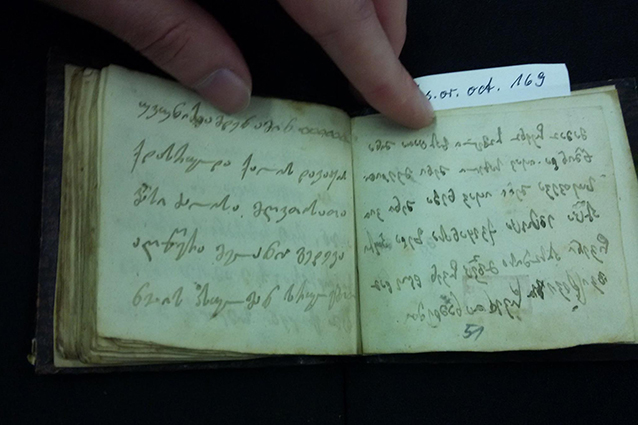
The folk tale manuscript was written in the modern Georgian Mkhedruli script. Photo by Giorgi Kavtaradze/Facebook.
The text also featured information about the copyist of the 51-page work.
The manuscript's final pages included the name of Melania the Daughter of Gedevan, prompting her recognition among the Georgian female copyists whose works preserved pieces of important historical material.
Founded in 1661, the Berlin State Library was the largest universal scientific library in the German-speaking world. Its collection of over 11 million books featured 42,170 oriental manuscripts including the newly discovered Georgian writings.
 Tweet
Tweet  Share
Share

